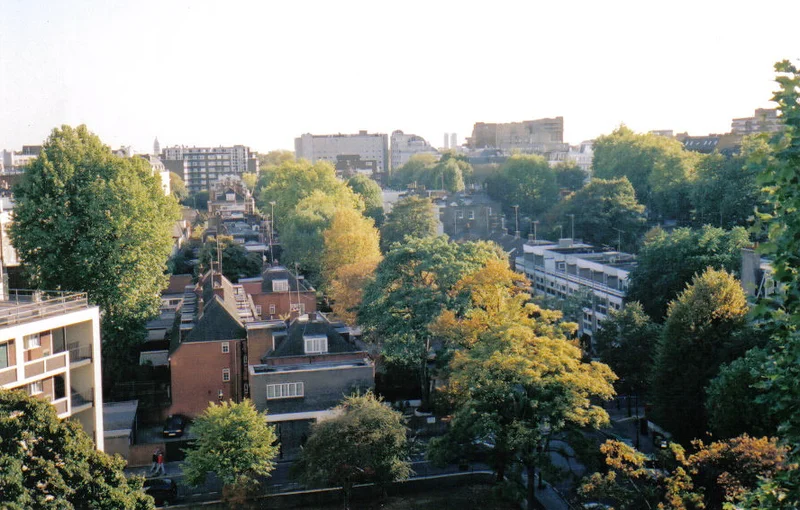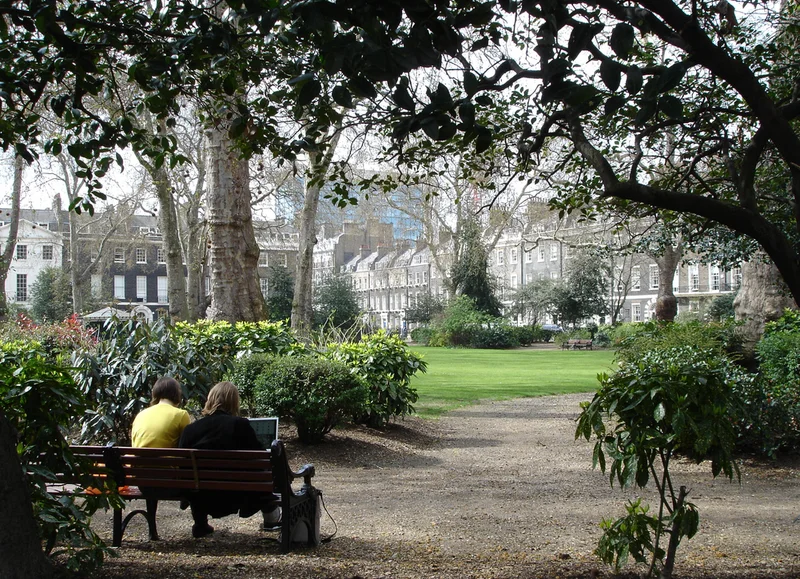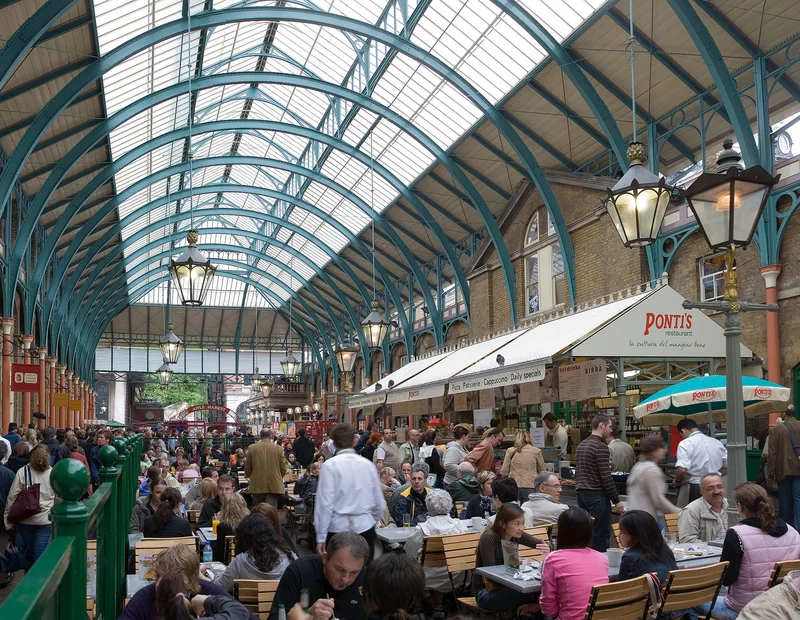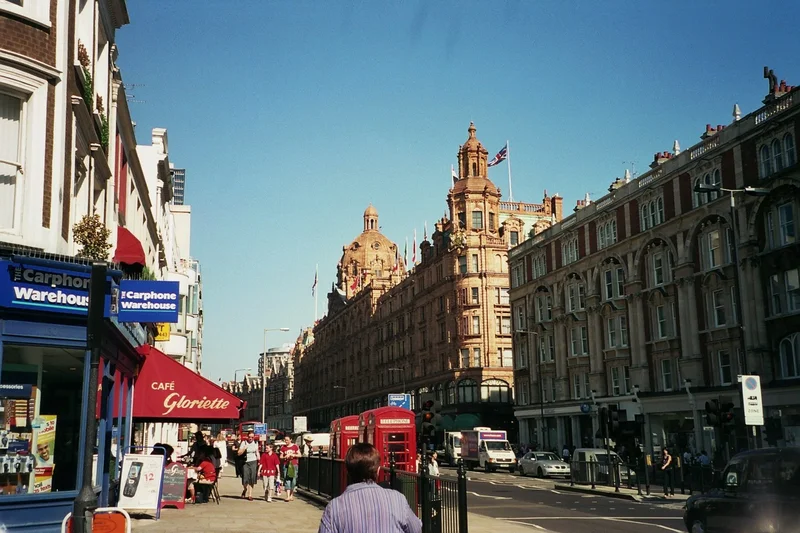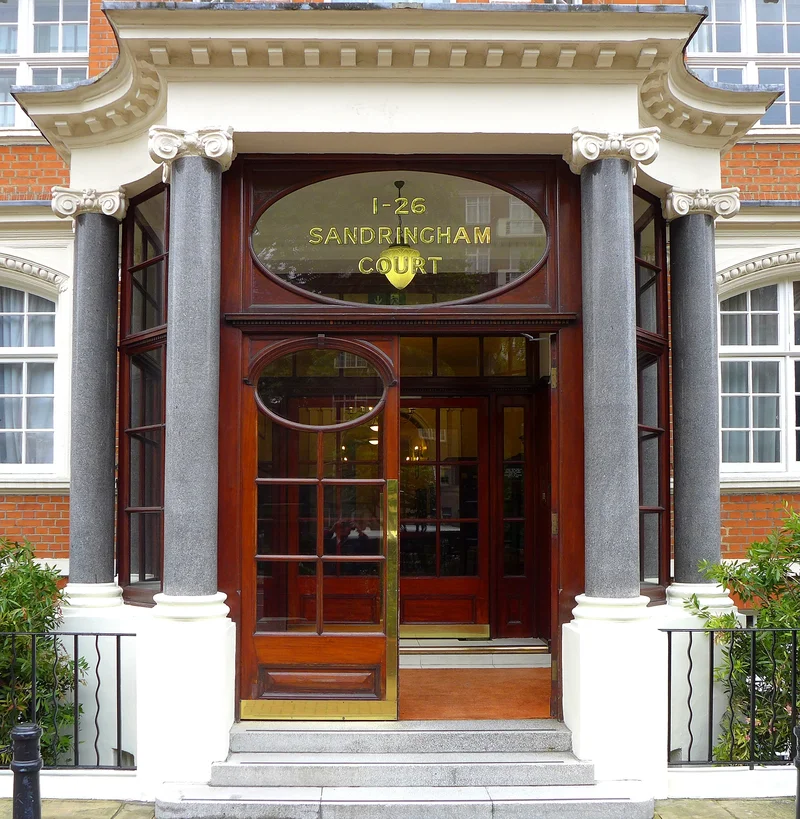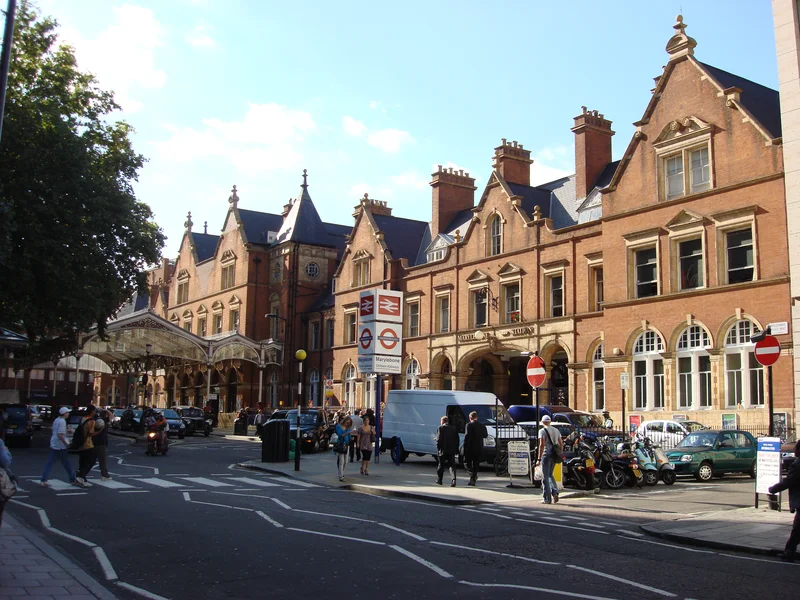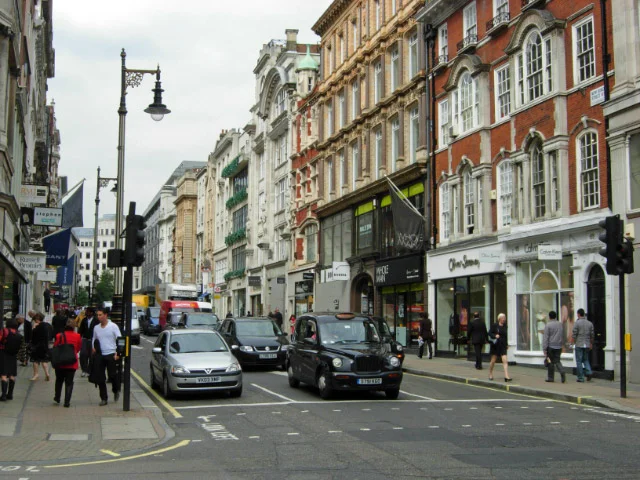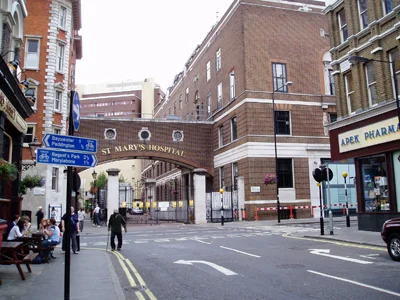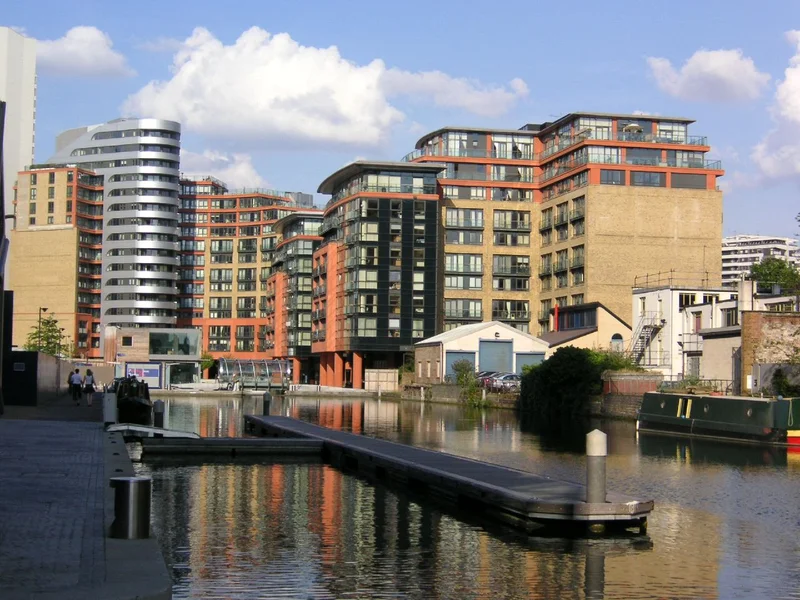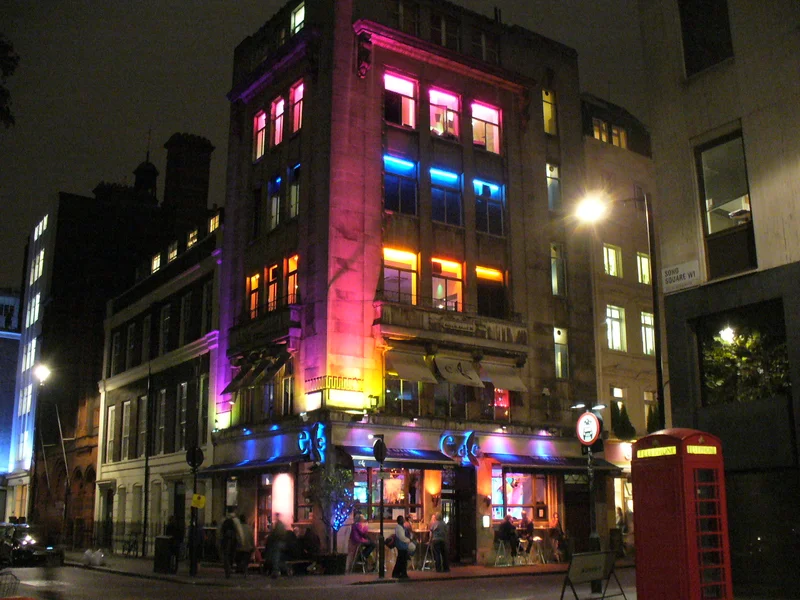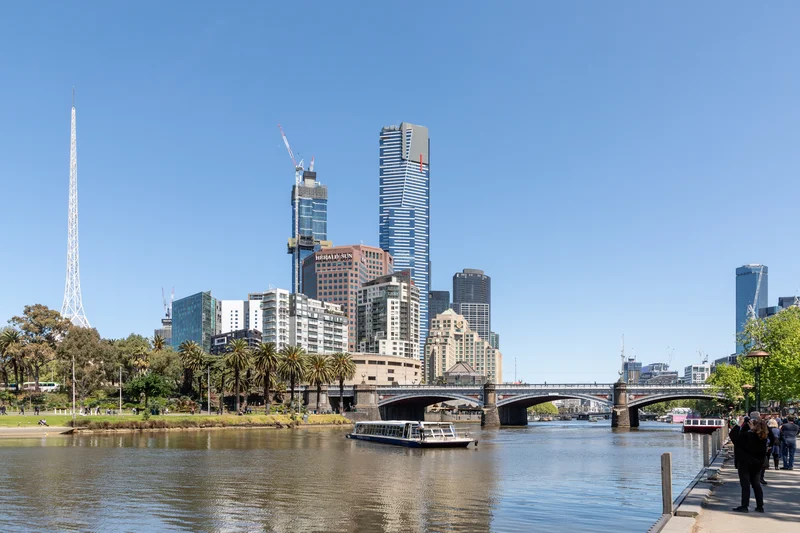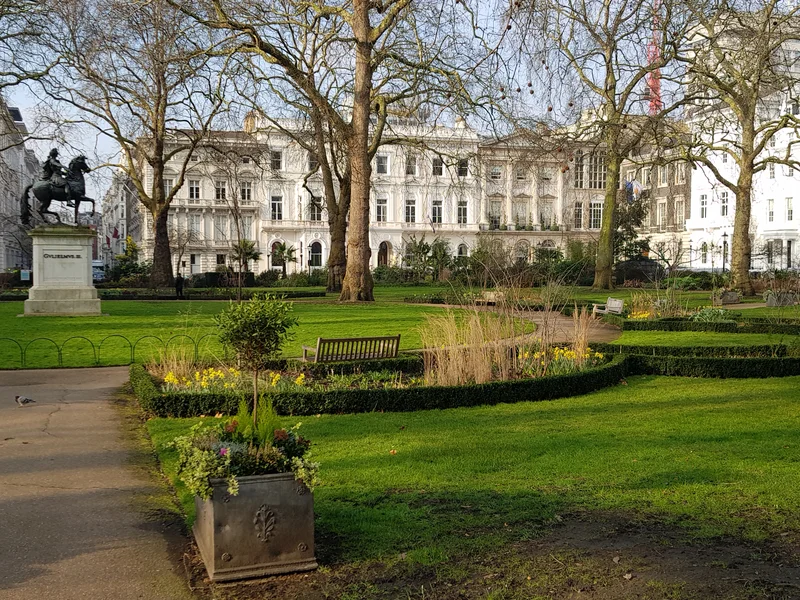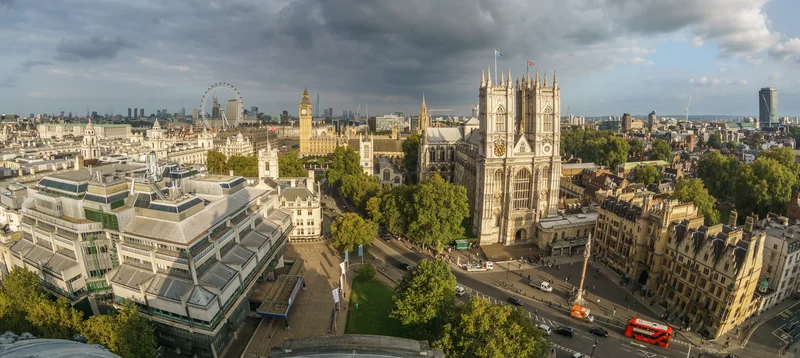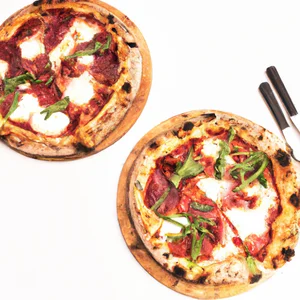Book your experience
The best Middle Eastern restaurants in London: hummus, falafel and beyond
If we talk about Middle Eastern cuisine restaurants in London, well, it’s like entering a bazaar of flavors and colours, really! There are places that make you feel like you are in a market in Marrakech, with the scent of spices enveloping you. So, let’s sit back and take a look at the best places to enjoy hummus, falafel and many other delicacies.
Let’s start with the classic hummus. There’s a restaurant, I think it’s called “Hummus Heaven” or something, where they prepare it so it almost looks like a painting. I swear, the texture is so creamy that it makes you want to dive into an entire pita! And let’s not talk about the variety of flavors, because in addition to the traditional one, they also have dried tomato and even chili hummus. It’s a journey!
Then again, who can resist falafel? I found a place that, honestly, has nothing to do with fast food. It’s called “Falafel Follies” and their falafel are so crispy that they seem to explode with flavor in your mouth, just like when you open a bag of chips! And, oh, if you want, you can customize them with tahini sauce which is the icing on the cake.
But it’s not just food, you know? There are also places where the atmosphere makes you feel at home, like “Shawarma & Co.”; there, you sit and listen to Arabic music in the background while enjoying a delicious shawarma. It’s a bit like a warm hug on a cold day, I don’t know if you know what I mean.
And, in my opinion, one thing not to be missed is the baklava. I tried a baklava from “Sweets of the Middle East” a while ago and, boy, was it like tasting a piece of heaven. The sweetness of the molasses and the crunchiness of the phyllo pastry… it’s like a dance of flavors.
In short, London has so much to offer in terms of Middle Eastern cuisine. I’m not 100% sure, but I think every time you go into one of these restaurants, it’s like opening a recipe book you’ve never seen before. And, who knows, maybe discover a dish that becomes your new favorite! What do you think, would you like to take a tour and try all this?
Discover the best hummus in London
I’ll never forget my first taste of hummus in a small restaurant in South Kensington. The creaminess of the legume, enriched by a drizzle of olive oil and a light squeeze of lemon, transformed a simple dish into an unforgettable sensory experience. That morning, sitting on a rustic wooden bench, I understood that hummus is not just an appetizer, but a true symbol of Middle Eastern conviviality and tradition.
The best restaurants to enjoy authentic hummus
In London, the search for the best hummus is a gastronomic adventure worth undertaking. Restaurants like Hummus Bros, located in the heart of Soho, offer a variety of hummus, from classics to more innovative ones, such as hummus with avocado. For an even more authentic experience, don’t miss the opportunity to visit Mitzvah, a place that celebrates tradition with recipes passed down from generation to generation. Here, every spoonful of hummus tells a story.
Unconventional tip: If you want a unique experience, try visiting Camden Market on the weekend. Here, you’ll find a small stall serving freshly made hummus, with fresh, local ingredients. This place is often overlooked by tourists, but locals consider it a real treasure.
The cultural impact of hummus
Hummus is much more than just a dish to enjoy; it is a symbol of unity and sharing in the Middle Eastern world. It embodies the meze culture, where dishes are served in shared portions, creating an atmosphere of conviviality. In London, this dish has found a new home, contributing to a cultural mosaic that celebrates the city’s gastronomic diversity.
Sustainability and responsible practices
Many Middle Eastern restaurants in London are embracing sustainable practices, using organic and local ingredients. For example, Yasmeen, a restaurant in Islington, is committed to reducing food waste and supporting local producers. Choosing to eat here means not only delighting your palate, but also contributing to a more sustainable future.
An activity worth trying
For a total immersion in the culture of hummus, take part in a Middle Eastern cooking workshop. Places like The Cookery School offer courses where you can learn how to make your own perfect hummus, exploring the different variations and ingredients. It will be an experience that will enrich your palate and your culinary skills.
Myths to dispel
A common misconception is that hummus can only contain chickpeas and tahini. In fact, there are endless variations, with ingredients ranging from grilled peppers to black olives. This versatility makes hummus a surprising dish, capable of adapting to everyone’s tastes.
Bottom line, the next time you enjoy a spoonful of hummus, take a moment to reflect on the stories and traditions that each bite holds. What’s your favorite version of this iconic dish?
Falafel: where you can taste the most genuine variations
A journey into flavors
The first time I tasted falafel in London, it was in a small kiosk in the heart of Camden Market. The air was permeated by an enveloping scent of spices and fresh aromas; the first bite of that crunchy falafel, with its soft and tasty centre, immediately transported me to a corner of the Middle East. This is the power of falafel: a dish that not only satisfies the palate, but also tells stories of different traditions and cultures.
Where to go for authentic falafel
If you are looking for the most genuine variations of falafel in London, I advise you not to miss the following places:
- Hummus Bros: With several locations in the city, this restaurant offers fresh, homemade falafel, served with a variety of hummus and salads.
- The Good Life Eatery: Famous for its healthy approach, here you can find delicious falafel, accompanied by fresh and nutritious ingredients.
- Maoz Vegetarian: A chain that celebrates falafel in all its forms, where you can customize your dish with a wide range of toppings and sauces.
An insider tip
A little secret that only true falafel lovers know is that, for an authentic experience, you have to try falafel served in a warm pita with tahini sauce and crunchy vegetables. Many restaurants also offer baked falafel options, but the real magic is found in fried falafel, which releases all its flavor thanks to quick frying.
The cultural context
Falafel has ancient origins, dating back to the culinary traditions of the Middle East, and today it has become a symbol of vegan and vegetarian cuisine around the world. In London, falafel is not just a street food, but also represents a bridge between cultures, uniting people of different backgrounds in an experience of sharing and conviviality.
Sustainability and responsible practices
In an age where sustainability is key, many London restaurants are committing to using organic and local ingredients. When choosing where to eat your falafel, look for places that promote responsible sourcing practices and minimize environmental impact.
An idea for a unique experience
To make your visit even more special, join a Middle Eastern cooking workshop. Many venues offer courses where you can learn to make falafel and other traditional dishes, a fun way to immerse yourself in food culture and bring a piece of London home.
Debunking common myths
A common misconception is that falafel is always a heavy and unhealthy dish. In reality, with the right combinations of ingredients and preparations, falafel can be a light dish, rich in proteins and fibre, perfect for those looking for healthy options.
Final reflection
When you try falafel in London, you’re not just enjoying a dish; you are participating in a centuries-old tradition that crosses cultures and continents. Have you ever wondered how a simple dish can tell such rich and varied stories? Be amazed by the magic of falafel and its ability to bring people together.
Restaurants with authentic and welcoming atmospheres
An experience that awakens the senses
I still remember the first time I walked into a Middle Eastern restaurant in London. The air was filled with spices, the sound of laughter and conversations animated the space, while the scent of freshly baked bread mixed with that of kumquat and basil. It was like popping into a Beirut market, and I couldn’t help but feel welcomed like an old friend. This is the essence of London restaurants that offer authentic and welcoming atmospheres, where cuisine is a bridge between cultures and histories.
Where to find these hidden gems
London is a vibrant, multicultural metropolis, and its Middle Eastern restaurants don’t disappoint. Among the most appreciated gems, Dishoom is famous for its recreation of the Bombay café atmosphere, offering extraordinary dishes such as biryani and hummus, served in a context that exudes warmth and hospitality. Another unmissable option is Mazi, which combines Greek tradition with a contemporary touch, in an environment that invites conviviality. Don’t forget to visit Marianne, an intimate and refined restaurant offering Middle Eastern dishes with fresh, seasonal ingredients.
An insider tip
If you want a truly unique dining experience, try booking a table at Palmyra, a Lebanese restaurant in Brixton where the waiter will guide you through an authentic mezze including dishes such as kibbeh and tabouleh , prepared with recipes handed down for generations. The real gem? Ask to taste their maamoul, a traditional dessert that you won’t find in many other places.
The cultural impact of Middle Eastern cuisine
Middle Eastern cuisine in London is not just food; it is a reflection of the stories, traditions and experiences of the communities that inhabit it. With the increase in the Middle Eastern population, these restaurants have become meeting places, where food becomes a universal language that unites people. Middle Eastern cuisine in London is also a way to address prejudices and misunderstandings, opening the doors to greater cultural understanding.
Sustainability and responsibility
Many restaurants, like Ottolenghi, not only serve delicious dishes, but are also committed to sustainability. They use organic and local ingredients, reducing their ecological footprint. Choosing to eat in these places means supporting responsible and environmentally friendly culinary practices.
Soak up the atmosphere
Imagine sitting at a table adorned with colorful dishes, while the soft lighting creates an intimate atmosphere. The vibrant colors of the dishes, from fattoush to shakshuka, tell stories of distant lands. Every bite is a journey that takes you to explore the richness of Middle Eastern culinary traditions.
An activity not to be missed
For an authentic experience, take a cooking class at The Arabesque, where you can learn to prepare traditional dishes under the guidance of expert chefs. This experience will not only enrich your culinary skills but will also immerse you in the culture and traditions of the Middle East.
Dispelling the myths
A common misconception is that Middle Eastern cuisine is only for those who love meat. In fact, there are countless vegetarian and vegan options that delight even the pickiest of eaters. Dishes such as mujadara (lentils and rice) and courgette pancakes are just some examples of delights that can surprise even the most convinced carnivores.
A final reflection
Next time you’re in London, ask yourself: what story does the food I’m about to eat tell? Restaurants with authentic atmospheres are not just places to eat, but spaces where cultures intertwine, creating an unforgettable experience. Discovering the authenticity of Middle Eastern cuisine in London is an opportunity to open your heart and mind to new culinary perspectives.
Middle Eastern culinary traditions in London
A journey through flavors and stories
The first time I tasted an authentic Middle Eastern dish in London, I was in a restaurant in Camden, surrounded by bright colors and enveloping aromas. While enjoying a plate of assorted mezze, I remember thinking about how Middle Eastern cuisine was a fusion of cultures, histories and traditions. Each bite told a story, a connection to distant lands and a celebration of conviviality. London, with its cultural diversity, has become a melting pot of culinary traditions worth exploring.
Discover tradition
Middle Eastern culinary traditions in London are reflected in a myriad of restaurants and markets offering typical dishes from various regions of the Middle East. From Shawarma to desserts like Baklava, each specialty carries with it a piece of history. Restaurants like Ottolenghi and Dishoom are not only gastronomic points of reference, but also true custodians of recipes handed down from generation to generation.
According to research conducted by Time Out, Middle Eastern restaurants in London have seen a 35% increase in their popularity in recent years, testament to the growing interest in these cuisines rich in flavor and tradition.
An insider tip
If you want a truly authentic experience, don’t limit yourself to the most popular restaurants. I recommend visiting local markets, such as Borough Market, where you can find stalls offering fresh ingredients and freshly prepared dishes. Here, you can not only enjoy delicious falafel, but also converse with the vendors who are often happy to share their stories and recipes.
The cultural impact
Middle Eastern cuisine has significantly influenced London’s food scene. With the rise of Arab and Turkish communities in the 1950s and 1960s, Middle Eastern food became an integral part of everyday life in London, contributing to an increasingly diverse gastronomic landscape. Each dish is a reflection of the meeting between cultures, a way to break down barriers and create connections.
Sustainability and responsibility
Many Middle Eastern restaurants in London are committed to sustainable dining practices. Restaurants like Honey & Co. use organic, local ingredients, promoting a responsible approach to cooking. Choosing to eat in these places not only delights the palate, but also supports a more sustainable economy.
An experience worth trying
For those looking for a unique activity, I recommend taking part in a cooking class of Middle Eastern cuisine. Several cooking schools in London offer courses where you can learn to prepare traditional dishes such as tabbouleh or kebab. There’s no better way to immerse yourself in a country’s culture than through food.
Myths to dispel
A common misconception is that Middle Eastern cuisine is only for those who like spicy dishes. In reality, many recipes are sweet and delicate, with a skilful use of spices that do not overwhelm the flavors but enhance them. It’s a journey of discovery worth taking.
Final reflection
The next time you are in London, ask yourself: what stories are hidden behind every dish you taste? Middle Eastern cuisine is not just a lunch or dinner, it is an opportunity to explore distant cultures and, perhaps, also to find a piece of yourself in a plate of hummus or in a crispy falafel.
Vegan dishes that surprise even carnivores
A memorable meeting
I still remember my first visit to a vegan restaurant in the heart of London, where I found myself sharing a table with a group of carnivorous friends. Their curiosity was palpable, but so was their disbelief: how could a dish without meat be satisfying? Yet, when the waiter brought a spiced chickpea burger with tahini sauce to the table, their expressions changed radically. They were not only surprised, but even thrilled! This episode made me understand that in London, vegan cuisine is not just an alternative, but a true celebration of flavours.
A selection of extraordinary dishes
London offers a myriad of vegan options that defy expectations, from renowned restaurants like Mildreds to hidden gems like The Spread Eagle, a vegan pub in Hackney that serves surprising dishes like the “kebab” of seitan and “fish” and chips made from algae. According to The Vegan Society, the English capital has become one of the friendliest cities for vegans, with over 200 specialist restaurants.
Insider tip
If you want an authentic and surprising experience, try visiting a local market like Borough Market. Here you will find stands offering freshly prepared vegan dishes, such as jackfruit turkey or lentil tacos, perfect for a tasty and quick lunch. A little-known tip is to ask the vendors directly if they have any “secret” options or specials of the day, often not mentioned on the menu.
A journey through culinary time
Vegan cuisine in London is not just a modern phenomenon. The culinary traditions of different cultures, from Indian to Middle Eastern, have profoundly influenced the city’s gastronomic scene. Dishes like falafel, which were once considered exclusively “street food”, are now an integral part of the menus of high-class restaurants, demonstrating how vegan cuisine can be both accessible and sophisticated.
Sustainability and responsibility
Many vegan restaurants in London are committed to sustainable practices, using organic and local ingredients. For example, Ethos promotes a business model that reduces food waste and is committed to using ethically sourced products. Choosing to eat vegan is not just a food choice, but a step towards a more sustainable future.
Immerse yourself in the atmosphere
Imagine sitting in a brightly colored restaurant, with aromas of spices mingling in the air and the chatter of customers blending into the background music. The conviviality is palpable and each bite is a sensorial journey to distant lands. This is London, a city where every dish tells a story.
Try it yourself!
For an unforgettable experience, book a table at Farmacy in Notting Hill, where you can enjoy a refreshing smoothie bowl and a lentil curry that will change your mind about what it means to eat vegan. It’s an opportunity to explore a new dimension of cooking, open to everyone, not just those following a vegan diet.
Myths and misconceptions
A common misconception is that vegan cuisine is boring or bland. In reality, the vegan world is rich in flavors and variety, capable of surprising even the most demanding palates. Don’t let the labels fool you: try it and find out for yourself how delicious it can be!
Final reflection
What does vegan cuisine mean to you? Is it just a passing trend or a real change in the way we think about food? Next time you’re in London, give yourself time to explore these options. You may discover a new favorite dish that you never would have considered before.
Sustainability: restaurants that respect the environment
An experience that makes the difference
I remember my first encounter with a sustainable restaurant in London: it was a small place in the heart of Hackney, where the scent of the food mixed with the fresh smell of the aromatic herbs grown in their garden. The owners, a couple passionate about cooking and the environment, told me that each dish is prepared with local, fresh and seasonal ingredients. That lunch was not just a meal, but an experience that opened my eyes to the connection between sustainability and gastronomy.
Restaurants not to be missed
In London, sustainability is not just a trend, but a commitment rooted in culinary culture. Some of the most renowned restaurants include:
- Farmacy in Notting Hill: here we serve vegetarian and vegan dishes prepared with organic and zero km ingredients.
- The Good Life Eatery: famous for its healthy and nutritious dishes, it is a paradise for those who love taking care of the planet without giving up taste.
- Moro: not just a restaurant but a real experience that celebrates Spanish and North African cuisine, using sustainable ingredients.
An insider tip
If you want a truly authentic experience, visit The Ethical Butcher. It is not just a restaurant, but a point of reference for meat lovers who want to make ethical choices. Here you can buy meat from farms that respect animal welfare and, if you’re lucky, you might attend one of their themed evenings where the chefs prepare special dishes with exclusive ingredients.
The cultural impact of sustainability
The trend towards sustainability in London restaurants is not just a recent phenomenon. It reflects a growing awareness of the ecological and social problems facing our planet. Middle Eastern cuisine, in particular, has a long history of using fresh, seasonal ingredients, and many London restaurants are rediscovering these traditions to adapt to a more sustainable model.
Responsible tourism practices
If you choose to eat in sustainable restaurants, you not only support the local economy, but you also help reduce the environmental impact of tourism. Many of these venues use eco-friendly practices, such as composting food waste and using biodegradable materials.
Soak up the atmosphere
Imagine sitting at a recycled wooden table, surrounded by green plants and local art decorations, while enjoying a plate of homemade hummus, accompanied by freshly baked pita bread. Each bite tells a story of passion and respect for the environment, while the soft music in the background creates a warm and welcoming atmosphere.
An activity worth trying
For the full experience, join a sustainable cooking workshop. Many restaurants offer courses where you can learn to prepare delicious dishes using fresh, local ingredients. It’s a fun way to deepen your culinary knowledge and bring a piece of London home.
Myths to dispel
A common misconception is that sustainable food is always bland or unappetizing. In contrast, restaurants that embrace sustainability strive to create delicious and innovative dishes. The freshness of ingredients and attention to quality can lead to surprising gastronomic experiences.
A final reflection
After exploring London’s sustainable food scene, I wonder: how much can a dish influence not only our palate, but also the way we see the world? The next time you sit down to eat, remember the impact of your choices and consider how each bite can contribute to a greener future.
A themed dinner: unique culinary experiences
An anecdote that whets the appetite
I vividly remember my first themed dinner at a Lebanese restaurant in London. The atmosphere was surrounded by soft light, while oriental melodies they danced in the air. Each dish was a work of art, and the presentation of the meze was so rich and colorful that it seemed to tell stories of distant lands. But the real surprise came when the restaurateur invited diners to join him for a short belly dancing lesson. That evening was not just a meal, but a cultural experience that highlighted the authenticity and conviviality of Middle Eastern cuisine.
Where to find themed dining experiences
In London, the variety of restaurants offering themed dinners is astonishing. From pop-up events to well-established restaurants, the landscape is full of options. Places like Dishoom offer evenings dedicated to Indian cuisine, while Moro offers dinners that explore the fusion of Spanish and North African flavours. Check sites like Eventbrite for the latest themed dinner offerings, which can range from tasting experiences to interactive cooking nights.
Unconventional advice
If you want a truly unique experience, look for restaurants that offer secret dinners or “supper clubs.” These events, often hosted in private homes, allow you to enjoy dishes prepared with love and passion, in an intimate and familiar environment. It is not uncommon that you can also chat with the chef, thus discovering the history behind the dishes served.
The cultural impact of the themed dinner
Themed dinners are not just a way to enjoy new dishes; they are also an opportunity to explore culinary traditions and the stories behind them. Middle Eastern cuisine, with its deep historical and cultural roots, offers a wide range of flavors and ingredients that tell stories of trade and cultural influences. Each dish is a journey through time, a link with past generations.
Sustainability and responsible tourism
Many restaurants in London are committing to sustainable tourism practices. Choosing restaurants that use local, seasonal ingredients not only supports the local economy, but also reduces environmental impact. Check whether the restaurant has sustainability certifications or participates in initiatives to reduce food waste.
An activity not to be missed
During your visit, don’t miss the opportunity to attend a themed dinner featuring historic Middle Eastern dishes at the Palestinian Cultural Centre. Here, you will enjoy traditional dishes while learning about the history and culture of Palestine, creating an experience that enriches not only the palate but also the mind.
Address common myths
A common misconception about themed dinners is that they are always expensive or elitist. In fact, there are many affordable options that offer amazing experiences without breaking the budget. Often, supper clubs can cost less than dinner at a traditional restaurant, while offering a more unique and personal atmosphere.
Reflecting on new perspectives
Every time we sit at the table for a themed dinner, we have the opportunity to open our palate and our mind to new cultures and traditions. What’s the last dining experience that made you see the world from a new perspective? Cuisine is a universal language, and each dish tells a story that deserves to be heard.
The history of the kebab: a journey through time
Imagine finding yourself in a welcoming restaurant in London, while the enveloping scent of marinated meat and spices envelops you. It is here that I savored the best kebab of my life, an experience that transformed a simple meal into a journey through the history and cultures that have shaped this specialty. At that moment, I realized that kebab is not just food; it is a symbol of connection between different culinary traditions.
A gastronomic icon
The kebab has very ancient origins that date back to various cultures of the Middle East, in particular in the Turkish and Persian tradition. The first traces of meat cooked on skewers date back centuries ago, when Ottoman warriors refreshed themselves with this nutritious dish. Today, in London, the kebab has become a real cultural phenomenon, adapting to local tastes and preferences.
Where to find the best kebab
If you’re looking for an authentic kebab in London, you can’t miss Dishoom, a restaurant that celebrates Indian and Middle Eastern cuisine with a touch of elegance. Here, lamb kebab is prepared with fresh ingredients and aromatic spices, served with a yogurt sauce that enhances every bite. Another place not to be missed is Kebabi, where each dish is freshly prepared, guaranteeing freshness and an unparalleled dining experience.
An insider tip
A little-known secret is to try kebab at night. Many restaurants, such as Istanbul Meze in Dalston, offer late-night specials with kebab dishes at discounted prices. It’s a perfect way to experience the lively atmosphere of the city, where the community gathers to enjoy traditional cuisine after a long day.
The cultural impact of the kebab
The kebab has a profound influence on London culture, uniting people of different backgrounds in a shared experience. It has become a symbol of multiculturalism, reflecting the history of immigration and integration that characterizes the British capital. Its versatility makes it a dish loved not only by locals, but also by tourists looking for authentic flavours.
Sustainability in the kitchen
Many kebab restaurants in London are moving towards more sustainable practices. By using meat from local suppliers and organic ingredients, they help reduce environmental impact and promote responsible eating. When choosing a kebab, look for restaurants that emphasize the origin of their ingredients.
An unmissable experience
For a unique experience, take a kebab cooking class, where you can learn how to marinate meat and make traditional sauces. Many London chefs offer workshops that will not only teach you techniques, but also allow you to understand the stories and cultures behind this iconic dish.
Myths to dispel
A common misconception is that kebab is a poor quality quick meal. In reality, a well-prepared kebab is a culinary art, rich in nuances of flavor and tradition. Investing in a quality kebab means discovering the authenticity and passion that characterize this cuisine.
A personal reflection
As you enjoy a kebab in London, I invite you to think: what stories lie behind every bite? Each dish tells of a journey, a meeting of cultures and traditions. The next time you immerse yourself in the flavors of kebab, remember that you are savoring a piece of history, an experience that unites the past with the present.
Middle Eastern markets: an unmissable local experience
When I think of London’s Middle Eastern markets, my mind goes back to a sunny day spent at Borough Market, one of the city’s most iconic markets. As I strolled among the stalls, the enveloping scent of spices and the sound of chatter among the vendors created a vibrant atmosphere. This is where I discovered the best hummus of my life, freshly made and served with a generous drizzle of olive oil and paprika. Since that day, my love for Middle Eastern cuisine has become a true obsession.
The art of discovery
Markets such as Greenwich Market and Camden Market offer an authentic dining experience. Here, you can find small stalls serving crispy falafel, succulent kebabs and traditional desserts like baklava. Every bite tells a story, a fusion of cultures and traditions that has permeated the city. There is nothing more authentic than enjoying a dish prepared by someone who has dedicated their life to perfect your culinary art.
An insider tip
If you are looking for a unique experience, I recommend visiting Brick Lane Market on Sundays. Not only will you find a wide range of Middle Eastern food, but you can also enjoy live performances by local artists. It’s a perfect opportunity to immerse yourself in London culture whilst tucking into delicious food. And don’t forget to stop and try the “black bean hummus”: a surprising variation that will leave you speechless!
The cultural impact
London’s Middle Eastern markets are not just places to shop, but true cultural centers. They represent a crossroads of traditions, where the flavors and culinary techniques of the Middle East mix with the diversity of London. This fusion has helped create a unique gastronomic landscape, making the city a major destination for lovers of Middle Eastern cuisine.
Sustainability and responsibility
Many vendors in London’s markets are committed to using fresh, local ingredients, contributing to sustainable tourism practices. Choosing to eat at markets not only supports small entrepreneurs, but also reduces the environmental impact compared to conventional restaurants.
An experience worth trying
Don’t just eat: take part in one of the many cooking classes held in the markets. Learning how to make hummus and falafel with your own hands will not only enrich your experience, but will allow you to bring a piece of London home to your heart and kitchen.
Myths and truths
A common misconception is that street food cannot be compared to restaurant food. However, in London’s Middle Eastern markets, you can find some of the most authentic and flavourful preparations, made with the freshest ingredients and passion.
In conclusion, next time you venture into London’s markets, remember that every bite is an opportunity to discover not only new flavours, but also stories and traditions. What’s your favorite Middle Eastern dish to try at markets?
Hidden restaurants to discover in London
A personal anecdote
I still remember my first evening in London, when, after a long day of exploring, I found myself walking down one of Camden’s back streets. Attracted by a delicious aroma, I followed the trail to a small restaurant without a sign, where a couple of Albanian gentlemen were preparing dishes that seemed to come out of a dream. There I savored such a crunchy and tasty falafel that it made me realize how much there is to discover beyond the more well-known restaurants.
Where to find culinary treasures
London is a true mosaic of cultures, and hidden restaurants are the beating heart of the food scene. Small pearls can be found in neighborhoods such as Shoreditch, Brixton and Notting Hill. For example, Mangal 2, a small Turkish grill, is a place where kebabs are prepared with passion and tradition. To discover these places, you can consult local blogs such as Time Out London or Eater London, which constantly update lists of the best lesser-known restaurants.
An insider tip
Here’s a tip that few know: look for pop-ups and food stalls at local markets like Borough Market. Often, the best emerging chefs experiment here, offering unique dishes at affordable prices. Don’t forget to ask the vendors what their favorite dishes are – you might discover specialties not on the menu.
A rich cultural impact
These restaurants aren’t just places to eat; they are places that tell stories. Many of them are run by immigrant families who bring with them unique culinary traditions, enriching London’s food landscape. This cultural exchange is reflected in the dishes served and in the conviviality that is felt.
Sustainability and responsibility
In an age where sustainability is key, many under-the-radar restaurants make environmental responsibility their mantra. Choosing to eat in these places often means supporting local sourcing practices and reducing environmental impact. For example, The Good Egg uses organic and ethically sourced ingredients, making each dish not only tasty, but also environmentally friendly.
An experience worth trying
For an unforgettable experience, book a table at one of these restaurants and ask for the “dish of the day”. Often, this dish is a specialty that the chef prepares with fresh ingredients from the market, giving you an authentic taste of local cuisine.
Myths and misconceptions
A common misconception is that smaller, lesser-known restaurants don’t offer the same quality as their more famous competitors. In fact, many emerging and passionate chefs are dedicated to creating extraordinary dishes, often with fresh ingredients and traditional techniques, making every bite a unique experience.
A final reflection
As you explore London, remember that true culinary treasure is often hidden in unexpected places. What hidden restaurant have you discovered that left you speechless? Be amazed by the gastronomic wonders of the city, and who knows, you might find your new favorite dish in a forgotten corner.

 Architecture and Design
Architecture and Design Cities and Regions
Cities and Regions Culture and History
Culture and History Events and Festivals
Events and Festivals Fashion and Shopping
Fashion and Shopping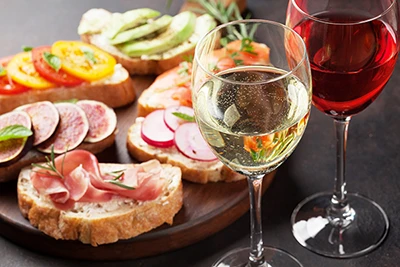 Food and Wine
Food and Wine Nature and Adventure
Nature and Adventure Unique Experiences
Unique Experiences